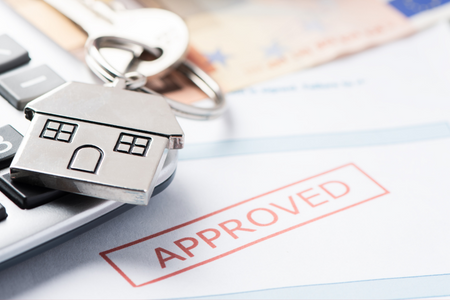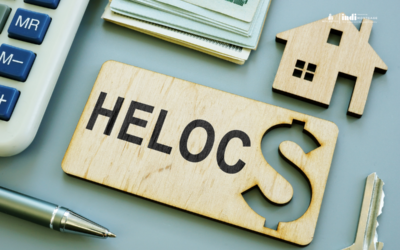Welcome To Our Mortgage Educational Blog About:
Your guide and your mortgage options

If you are a first-time homebuyer looking for your first home, you may feel overwhelmed when it comes to mortgages. The decision of what payment structure you will use is very crucial. Prior to making any commitments it is important to note that whichever plan you choose will define the flexibility accorded and prepayment penalties.
As a future homeowner, having proper distinctions between open-end and closed-end mortgage agreements will help you make more informed decisions based on your needs and financial situation. This article gives you a detailed breakdown of everything you need to know.
Mortgage Types
Open Mortgages
For starters, open mortgages are far more flexible. The principal amount can be paid back in full or in part at any time without a prepayment charge. In addition to that, there is the option to renegotiate or refinance the contract before the maturity date without worrying about penalties.
The freedom that comes with open mortgages has a cost. The interest rates tend to be significantly higher; you will most likely end up paying the prime rate as well as a substantial premium.
Open mortgages make financial sense in instances where you are expecting a financial windfall such as a work bonus. In such an instance you can make a lump sum payment for your mortgage.
The terms for open mortgages are shorter, ranging between six months and five years depending on the options offered to you by the lender.
Closed Mortgage
Closed mortgages come with more restrictions and limited prepayment privileges for the borrowers. What this means is, once the terms are set, there is no going back. During the entire duration of the contract you will not have the option of fully paying off your mortgage, refinancing or renegotiating without incurring a penalty.
On the bright side, the rates for closed mortgages are lower in comparison to those of open mortgages since lenders know that you are fully committed.
More importantly, in as much as it is a closed agreement, some mortgages offer prepayment privileges. These privileges include the option of being able to pay a certain percentage of the original principal amount of your mortgage annually or doubling up your regular payments. It entirely depends on the prepayment terms set by the lender.
If for any reason you will need to either sell your home or move away, this is ground for breaking your contract. You will be required to pay to get out of your mortgage contract.
Calculations to determine how much you will be required to pay are based on the Interest Rate Differential or three months of interest, whichever is higher.
Other types of Mortgages
Assumable Mortgages
An assumable mortgage is where a buyer takes over a property before payment for the mortgage is completed. The buyer covers the remaining mortgage payments. Lenders must approve this mortgage because the buyer is limited to financing through the seller’s lender.
The contingency of an assumable mortgage depends on whether the seller had a fixed interest rate mortgage and had not used a home equity line of credit (HELOC).
This type of mortgage is ideal for buyers who intend to utilize historical interest rates since they are much lower compared to rates at the time of purchase.
Portable Mortgage
A mortgage being portable means that if you resolve to move to a new home, you have the option to take your mortgage with you. This comes in handy especially in instances where you have a mortgage with a competitive interest rate.
The downside is that mortgaging companies have different rules on what they permit when it comes to porting. Before making any moves, having a proper discussion with your lender is paramount.
Reverse mortgage
With reverse mortgages, part of the equity in your home is taken and converted into payments to you. Ideally, you get a loan in which the lender is paying you. So instead of paying monthly mortgage payments, you instead get an advance on part of your home equity. The money acquired is not taxed.
A reverse mortgage is mostly suitable for elderly homeowners who may be looking to get money to settle mortgage payments or supplement their income.
This type of mortgage is ideal for buyers who intend to utilize historical interest rates since they are much lower compared to rates at the time of purchase.
There are three types of reverse mortgages
- Single purpose reverse mortgages – these are offered by local government agencies and nonprofits
- Federally insured reverse mortgages – also known as home equity conversion mortgages and are federally insured mortgages.
- Proprietary reverse mortgages – they are private loans that are corroborated by the corporations that develop them.
Steps when getting your mortgage
The mortgage process is lengthy and complicated but there are a couple of distinct stages:
- Getting your pre-approval
Knowing which kind of mortgage suits you best and how much you can afford to pay gives you a depiction of how much you will pay monthly. Only then can you approach lenders for pre approval.
- Finding a property
Once you have your pre-approval, you can either use real estate agents or look for an off market home.
- Applying for mortgage
After shopping around for a mortgage lender with the best deal, you can now apply for a final mortgage
- Completing the loan processing
After gathering all your details, the lenders provide you with a loan estimate. If you do not meet the lender’s basic qualification, your application is rejected.
- Go through the underwriting process
Underwriters are integral in the mortgage approval process. They make an assessment of your application and can either reject or approve it
- Close on the property
Once you have an approved mortgage, you can finally close
Conclusion
The kind of mortgage a home buyer settles for depends on their future plans; they may be planning to rent out the property not actually live in it. A lot of thought has to be put into which mortgage you will be able to afford. In the eventuality you break any terms of the contract, there are hefty financial penalties.
Are you ready to purchase your first home? Reach out to me directly or start your application here: www.sandraforscutt.ca/mortgage-application/
Don’t hesitate to contact us with any questions you may have.
Recent Educational Blogs
First Responder Mortgage Program
Jan 2026 | First Responder Mortgage ProgramAt Metro Mortgage Group, we have deep respect for the everyday heroes of our city — the members of the Edmonton Police Service, EMS, and Fire Rescue Services. Your commitment keeps our community safe, often at great personal...
Pros and Cons of a Home Equity Line of Credit (HELOC)
Dec 2025 | Pros and Cons of a Home Equity Line of Credit (HELOC)If you’re a Canadian homeowner, you’ve probably heard friends or family talk about using a home equity line of credit, or HELOC. People often use it to renovate, consolidate debt, or help kids with school...
What the Latest Bank of Canada Rate Cut Means for Canadian Borrowers and Homeowners
Nov 2025 | What Rate Cut Means for Canadian Borrowers and Homeowners On October 29, 2025, the Bank of Canada made headlines by cutting its benchmark policy rate by 25 basis points. This move brought the policy rate down to 2.25%. For Canadians with mortgages, loans,...



